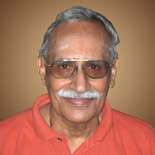|
Go to Part 9 V – The validity of knowledge gained through Vedanta We may now look into the validity of the knowledge obtained through a pramäëa. The basic principle is that whenever all the conditions necessary for gaining a specific knowledge are fulfilled, there must be that knowledge and it must be valid. The validity of the knowledge so gained has two aspects, namely,
• the validity of knowledge arising from the pramäëa is spontaneous; it arises as a matter of course and is inherent in the knowledge; that is, its validity is svataù-siddha or self-established; • with the apprehension of the knowledge, its intrinsic validity is spontaneously known, as there is manifestation of its validity along with the manifestation of knowledge; that is, its validity is svataù-prakäña or self-evident.
Thus, whenever there is knowledge of anything, it is intrinsically valid and its validity is spontaneously known. Its validity is questioned only when some deficiency is noticeable in the cause of knowledge, such as the defect of the eyesight or illumination in the case of perception and erroneous reasoning in the case of inference. Thus, the invalidity of knowledge arises from the external agencies alone.
The test of the truth of the knowledge is that it remains uncontradicted. That it is experienced or that it is universally held to be true or that it is of tremendous practical utility does not necessarily mean that the knowledge is true. For example, the rising and setting of the sun are experienced, they are considered by all to be true and they give rise to the day and time. Nevertheless, these do not mean that the rising and setting of the sun are true knowledge, since they are contradicted by astronomical knowledge. Valid knowledge is that which is not contradicted. To cognize the rope as snake is not valid knowledge, as the object of this knowledge, the snake, is contradicted by the knowledge of the rope. The knowledge that is not contradicted is accepted as true and needs no verification. For instance, the cognition derived through the sense of taste establishes the fact that sugar is sweet. On the sole testimony of a single cognition of that one sense, we accept it as an indubitable fact. Knowing arising from the hearing of a sentence of Veda is also of the same type and it need not be established by another means.
We must also note that is not possible for the knower to affect in any manner the process of knowing through the pramäëa, since pramäëa operates in a choiceless manner. While action requires the will of the knower, knowledge does not. Once the means of knowledge and object of knowledge are aligned, knowledge immediately takes place. For example, if someone says, “Please open your eyes, look at me but do not see me”, we cannot comply with the request since we have no choice but to see and know. We, as the knower, cannot decide anything about the object in terms of its truth. If a buffalo is before our eyes, we cannot see it as a cow, however much we may wish. Knowledge is as true as the object of knowledge. Also, when we see anything, we cannot say that we do not know it, as the result of the knowing goes to the knower. The technical expression for these unique characteristics of knowing is vastu-tantram [52].
Another intrinsic feature of the pramäëa has to be reiterated. What we can know is entirely determined by the means of knowledge. For example, through the eyes, we can see only color and form; through the ears, we can hear only sounds. What we can know is therefore determined by the means of knowledge used [53]. We are therefore obliged to use only the appropriate means for knowing and we have no choice in the matter. For example, if we wish to know the smell, we have no other go but to use our nose. We cannot replace one means of knowledge by another and try to smell through the eyes. Similarly, as regards the self, it can be known only through the pramäëa of Vedänta and nothing else.
Thus, the crucial points that emerge are:
• Vedänta is the only pramäëa for knowing the self as other pramäëas have no access to the self for knowing it; • So, for knowing the self, we cannot replace Vedänta by any other means of knowledge; • The validity of the knowledge gained through any pramäëa is intrinsic and the validity of knowledge is self-evident; • Since the knowledge gained from any pramäëa is intrinsically valid, it has to be accepted in the same way as we accept the smell as revealed by our nose; and • Therefore, we do not have any basis to question what Vedänta reveals about the self.
There is, however, the misgiving that Vedänta, being constituted of words, can convey only indirect knowledge and not direct knowledge as is obtained through perception of an object, which is before our eyes. It is true that words reveal only indirect knowledge about objects that are away from us either in space or in time. For example, we get only indirect knowledge of the Valley of Flowers in the Himalayas by reading or hearing an account of it at Chennai. But unlike the Valley of Flowers, we cannot be ever away from ourselves. We are always immediately available to ourselves and are directly experienced by us all the time. Before seeing, hearing, smelling, feeling, tasting or thinking, we are always here as a person. Therefore, we are always available for the direct knowledge of ourselves.
It is somewhat similar to the following incident. Once, while Pujya Swamiji was traveling, a co-traveler told him that he is on his way to see Pujya Swamiji. Thereupon, Pujya Swamiji told him that he was already seeing him. What the words of Pujya Swamiji revealed was only direct knowledge, since what is revealed by his words is readily available for direct cognition. While it was necessary to reveal Pujya Swamiji through direct perception for the words to give direct knowledge, it is not necessary to reveal the self, as it is self-revealing. Words can give direct self-knowledge straightaway.
Like any instrument of knowledge, words must be handled appropriately under the right conditions so that they give valid knowledge. For the eyes to function, there must be enough light. For some eyes, corrective lenses are necessary. For the ears to discriminate a given sound, there must be the right volume, the right distance and the right notes. For the words of Vedanta to work as a pramäëa, they must be heard by a fresh, open mind, which is not distracted by reactions, emotions, fears and prejudices from a teacher who, knowing the methodology, uses them in a particular context in accordance with a particular methodology.
The question arises as to how we can clear the doubts that arise in respect of the revelations made by the pramäëa. They are resolved exactly as we do in the case of what is revealed by the other means of knowledge, which is to use the very same pramäëa for the purpose. For example, when we are not clear about what we see, we check by seeing again, perhaps by wearing glasses or by switching on the light or by seeing through a magnifying glass. Similarly, in the case of Vedänta, we look into the concerned text again together with all the connected portions and apply the principles of analysis of the text called mémäàsä and resolve the doubt through reasoning (yukti [54]) based on the facts revealed by the pramäëa. [55]
We may now conclude our discussion by reiterating that:
• valid knowledge can be gained only through a pramäëa and not from any other; and • for knowing the self, Vedänta alone is the pramäëa.
52.Vastu tantram is unlike puruña tantram where we decide whether to perform an action or not and determine the nature of action.
Go to Part 11
|
|||
|
|||


www.advaita.org.uk
Advaita for the 21st Century



Vedanta - Part 10
VEDĀNTA the solution to our fundamental problem
D. Venugopal

D. Venugopal is a student of Swami Paramarthananda and a direct disciple of Pujya Swami Dayananda. He has successfully completed the long-term residential course in Vedanta and Sanskrit conducted from May 2002 to July 2005 at the Arsha Vidya Gurukulam, Anaikatti.
Go to CONTENTS
Biography
Buy from Amazon UK
. Available from Bharatiya Vidya Bhavan centers at London, New York and Sydney.
. Also through the IBH Books & Magazines Distributors Pvt. Ltd. - contact contact@ibhworld.com. In case of difficulty,pvsankarankutty@bhavan.info can be contacted.
BOOK DETAILS
Publisher: Bharatiya Vidya Bhavan
ISBN: 978-81-7276-457-9
Format : Paperback
Pages: 324
List Price: US$7.00
Where to Buy
AUTHOR DETAILS

